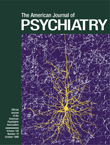ICD-10 Casebook: The Many Faces of Mental Disorders—Adult Case Histories According to ICD-10
“Names,” says an old maxim, “are things. They certainly are influences. Impressions are left and opinions are shaped by them.…The mean and selfish talk of their prudence and economy; the vain and proud prate about self-respect; obstinacy is called firmness, and dissipation the enjoyment of life; seriousness is ridiculed as cant, and strict morality and integrity, as needless scrupulosity; and so men deceive themselves.” Tryon Edwards (1809–1894) published this maxim in his first book of quotations in 1852 under the title Jewels for the Household. He certainly was not thinking about psychiatric diagnoses, but his words apply rather well to the self-deception that underlies the notion that to name something is to know it.
Psychiatry is good at naming. The case histories in this little book were selected from those used in ICD-10 training courses around the world and in the clinical field trials that resulted in the current international classification system. The field trials apparently yielded some 400 case summaries. This book presents more than 100, each illustrating one of the categories of the adult diagnoses coded F0 to F6 in ICD-10. Because the psychiatric categories are very similar to those in DSM-IV, the cases may well be useful for training and discussion. And questioning.
The personal stories are culled from around the world, and each contains the presenting problem, the history, the findings, and the course of illness. Each is followed by a discussion section that illustrates the application of ICD-10 guidelines in the making of a specific diagnosis. Each example is colorfully titled, so the story (and the salient diagnostic issues) remains firmly planted in the minds of students, e.g., “The Royal Visit,” “The Smell of Revenge,” “Pulling Up the Flax.”
The editors direct interested students to two companion books, the “blue” book (ICD-10 chapter 5, “Clinical Descriptions and Diagnostic Guidelines”) for clinicians and the “green” book (ICD-10 chapter 5, “Diagnostic Criteria for Research”) for researchers. This one is the “red” book, meant as an easy introduction to the art of diagnosis based on predominantly cross-sectional information about presenting symptoms and physicians’ findings.
Students may find it helpful to make the crosswalk between the international system and the American system. ICD-10 continues to use the term “organic mental disorders” (F0 and F1), F1 encompassing psychoactive substance abuse disorders. DSM-IV has stopped using the word “organic” (presumably all disease has biological correlates) and, instead, uses descriptive categories: deliriums, dementias, amnesic disorders, mental disorder due to a general medical condition, and substance-related disorders. ICD-10 F2 and F3 are grouped as psychotic mental disorders (schizophrenia and mood disorders), although many of the examples are without psychotic features. Why is something a psychotic disorder if only some of the cases, some of the time, exhibit psychosis? Incidentally, what is psychosis? The ICD-10 F4, F5, and F6 categories cover “neurotic, stress, and personality disorders.” DSM-IV calls these anxiety, somatoform, factitious, dissociative, sexual and gender identity, eating, impulse control, and personality disorders, having dispensed with the meaningless word “neurotic.” Perhaps, soon, the equally meaningless word “personality” will yield to more understandable descriptors.
Despite the somewhat different names, the syndromes are clearly similar in the two systems, and, around the world, as in the United States, the available treatments continue to be limited in number and efficacy no matter what the disorder is called.
There is certainly magic in names. “Some to the fascination of a name surrender judgement, hoodwinked” (William Cowper, 1731–1800).



